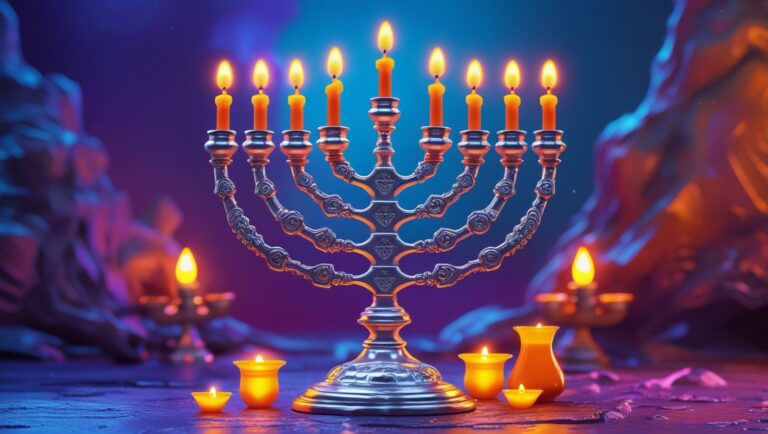We spoke in another article about how reincarnation can be very complex.
One of the Kabbalistic principles that govern the world is that all tabs need to be paid in the end.
We are all here to fix the damage caused by the sin of Adam HaRishon. If we do the Tikkun (rectification), we are supposed to do, all is well and party ensues. But if not (and if we are lucky), we have to go down into this world and rectify it.
The Torah of Reincarnation is a tremendous act of compassion on Hashem’s part, as we read from the Maggid Meisharim by Maran Yosef Karo. A person who lacks Mitzvot cannot enter Gan Eden since Gehinom only cleanses him from sins. So, Hashem devised a way a person can complete his soul garments by coming down either as a full reincarnation or as an Ibbur (pregnancy).
While it might sound great to have a second change – who, in their right mind, would want to come down to this world again?
Not only would a person need to go through an entire lifetime, which might be good or not, but he may even risk breaking more things by sinning. Who would want to forgo the pleasures of Gan Eden, whose complete peace and bliss transcend our understanding, to go to this physical world and suffer again with work, diseases, being tired, lacking money, shattered dreams, and so on?
Either way, Hashem has many ways of closing the tabs as you will see below.
Video is here:
The story follows below, edited for your convenience since the AI software to transcribe left much to be desired:
The Maggid of Mezritch once approached the Baal Shem Tov with a query regarding the Zohar’s interpretation of the opening verse of parashat Mishpatim, which deals with the secrets of reincarnation.
This is the parsha that details the laws of servants, which the Zohar reveals to hold the mystery of reincarnation. The soul is a servant of Hashem to pay for its debt (the Tikkun it must do) and for one reason or another, has to come down to this world in certain stages. This is all alluded to in the written Torah.
The Maggid wondered about the apparent disparity between the straightforward meaning of the verse, which pertains to monetary and legal matters, and the mystical concept of multiple soul incarnations.
In response, the Baal Shem Tov sent the Maggid on a journey to a forest, instructing him to find a specific tree near a spring and remain there until evening.
Upon reaching his destination, the Maggid encountered a soldier resting with his horse. Fatigued, the man paused to eat and drink, inadvertently leaving his wallet behind. Soon after, another individual stumbled upon the wallet and took it with him.
Shortly thereafter, a destitute and weary third man arrived. Seeking respite, he sat beneath the tree, ate some bread, drank from the well, and rested. Unexpectedly, the armored rider returned and accused the poor traveler of possessing his wallet. Unaware of its existence, the traveler was mercilessly beaten by the rider, who doubted his innocence, before continuing his journey.
As dusk descended, Rabbi Dov Ber, the Maggid, returned to the Baal Shem Tov and recounted what he had witnessed. Clearly, there was no way to make sense of the episode.
The Ba’al Shem Tov explained:
In a previous life, the rider had owed the second man an equal sum of money to that found in the wallet but had refused to repay him then. Consequently, the creditor brought the rider before a local rabbi, who happened to be the third man in a previous incarnation! Unfortunately, the rabbi had not thoroughly investigated the claim and dismissed it.
Thus, the connection between divine justice and reincarnation becomes apparent. As a result of their present reincarnation, the first man was compelled to “repay” his debt to the second individual, while the third man, the former rabbi-judge, received the punishment he deserved.
Concluding Remarks
Hashem’s justice is perfect. Sometimes we don’t understand why certain things happen to us the way they do, but there truly is nothing outside His providence. We are, after all, subsumed in Hashem’s will.
Keeping this in mind helps us maintain a more positive outlook in life. After all, Rav Chaim Vital cautions us that a person is not only judged by his Mitzvot, Talmud Torah and sins, but also for his Middot (character traits).
Being happy constantly is one great panacea for all ailments, as Rebbe Nachman of Breslov teaches in Likutey Moharan.
B’ezrat Hashem, we should all finish our Tikkunim in this lifetime and merit Gan Eden by 120, having had a great life!







